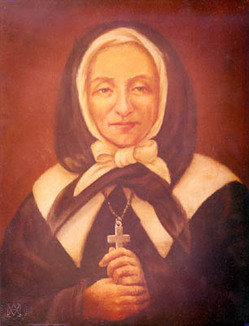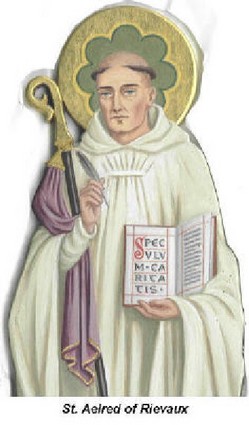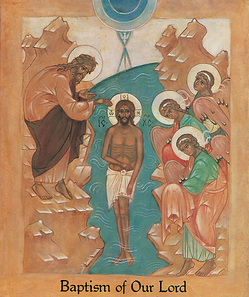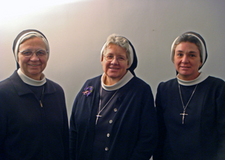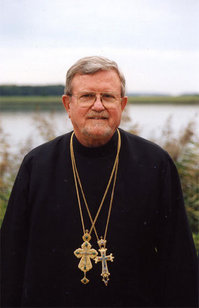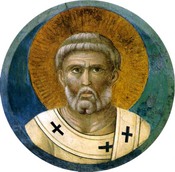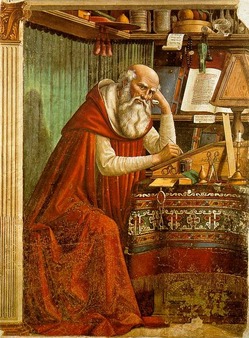 Saint Jerome once said that ignorance of Scripture is ignorance of Christ. Therefore it is not a stretch to say that an authentic, believing Catholic studies and prays the Bible.
Saint Jerome once said that ignorance of Scripture is ignorance of Christ. Therefore it is not a stretch to say that an authentic, believing Catholic studies and prays the Bible.
But what do we believe about the Bible? Catholics hold that Scripture is the inerrant Word of God and is authoritative for understanding Christ’s teaching; it is the basis for all Church teaching. Further, it is the Holy Spirit who provides a guide to understanding Christ’s teaching which is called Tradition. In fact, it was Church who, under the Holy Spirit’s inspiration that the Scriptures were written. With Tradition assisting us, nothing can replace an intimate familiarity with the Word of God through study and prayer (personal & communal). As the Fathers of the Second Vatican Council said that we are to, “[hear] the word of God with reverence and proclaiming it with faith.”
In 1965, the Church gave us a pivotal document on Scripture, Dei Verbum, which outlines its place in the life of every Christian. For many Dei Verbum is a middle way for biblical interpretation which lies between Protestant fundamentalism and secular rationalism. I recommend that you consider each word of this document. If you think Catholics find Scripture irrelevant you will find the following astonishing :
Therefore, all the clergy must hold fast to the Sacred Scriptures through diligent sacred reading and careful study, especially the priests of Christ and others, such as deacons and catechists who are legitimately active in the ministry of the word. This is to be done so that none of them will become “an empty preacher of the word of God outwardly, who is not a listener to it inwardly” since they must share the abundant wealth of the divine word with the faithful committed to them, especially in the sacred liturgy. The sacred synod also earnestly and especially urges all the Christian faithful, especially Religious, to learn by frequent reading of the divine Scriptures the “excellent knowledge of Jesus Christ” (Phil. 3:8). “For ignorance of the Scriptures is ignorance of Christ.”
Therefore, they should gladly put themselves in touch with the sacred text itself, whether it be through the liturgy, rich in the divine word, or through devotional reading, or through instructions suitable for the purpose and other aids which, in our time, with approval and active support of the shepherds of the Church, are commendably spread everywhere. And let them remember that prayer should accompany the reading of Sacred Scripture, so that God and man may talk together; for “we speak to Him when we pray; we hear Him when we read the divine saying.”
It devolves on sacred bishops “who have the apostolic teaching” to give the faithful entrusted to them suitable instruction in the right use of the divine books, especially the New Testament and above all the Gospels. This can be done through translations of the sacred texts, which are to be provided with the necessary and really adequate explanations so that the children of the Church may safely and profitably become conversant with the Sacred Scriptures and be penetrated with their spirit.
If you are looking for a fine review of what Dei Verbum has meant to us 35 years later I tend to think this essay of Archbishop Charles Chaput of 2000 as helpful. Additionally, you will find a wealth of information for biblical study at St. Paul Center for Biblical Theology directed by Scott Hahn. Hahn’s section on biblical studies is found in this internet library.
You may be short of time so I have drawn together a set of booklets on some aspects of Scripture published by the Catholic Information Service that are quite fine. Here are 8 online resources about sacred Scripture and the faith that will help know the fundamentals which will assist your personal study and prayer life:
About the Bible
God’s Story of Creation
Some Lessons from Genesis
The Ten Commandments
Revelation: A Divine Message of Hope
Q& A about the Catholic Faith
An underestimated chain of scripture is the gift of the Rosary. I would venture to say that no serious Catholic can resist the Rosary as form of prayer especially if he or she wants to know the Lord and to decapitate the head of sin. The Scriptural Rosary for Peace makes it clear the intimate connection between Scripture and the rosary
If you are looking for a primer on the Faith, then I would recommend reading and/or listening to the 30 booklets that address the various elements of our salvation in Jesus Christ in the Hart series. This series carries the reader through a systematic study of what Catholics believe and how Catholics worship and live.
One last point: pray the Divine Office. The sacred Liturgy of the Church comprises the praying the Divine Office (at the hinge hours of Morning and Evening Prayer) and praying the Sacrifice of the Mass. In a real sense one can’t divorce the Divine Office from the Mass as they form a unit. So if one conceives of the Liturgy as merely the Mass and makes no connection to the Divine Office, then that person has deficient view of the sacrifice of praise the Church continually offers to God. And what is the Divine Office and Mass? Pure Scripture; pure praise of the Blessed Trinity. Once you discover that the Liturgy (the Office & Mass) is the Church’s prayer speaking the Word of God and God speaking to us, or say it another way, the Mass is the face of the Word of God today and into eternity.
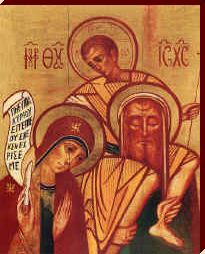 Our God, indivisible Trinity, you created the human being “in your image” and You admirably formed him as male and female that so together, united and in reciprocal collaboration with love, they fulfilled Your project of “being fecund and dominate the Earth”; We pray to You for all our families that so, finding in You their initial inspiration and model, that is fully expressed in the Holy Family of Nazareth, can live the human and Christian values that are necessary to consolidate and sustain the love experience and to be the foundations of a more human and Christian construction of our society.
Our God, indivisible Trinity, you created the human being “in your image” and You admirably formed him as male and female that so together, united and in reciprocal collaboration with love, they fulfilled Your project of “being fecund and dominate the Earth”; We pray to You for all our families that so, finding in You their initial inspiration and model, that is fully expressed in the Holy Family of Nazareth, can live the human and Christian values that are necessary to consolidate and sustain the love experience and to be the foundations of a more human and Christian construction of our society. 